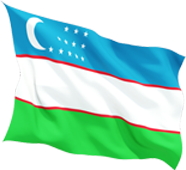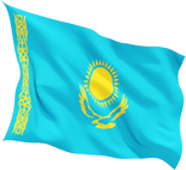An official document of the General Assembly on the unique system of citizen self-government – “mahalla” in Uzbekistan was distributed to the UN. It is based on the Samarkand Declaration adopted during the International Conference “The Role of Mahalla in Improving the Living Standards of the Population”, which was held from 2 to 5 October 2024 in Samarkand.
The document covers in detail the activities of the mahalla as a significant institution that contributes to strengthening social cohesion, intergenerational dialogue and humanistic values.
It should be noted that the Samarkand Declaration was an important step in international recognition of the importance of the mahalla. It emphasizes that in New Uzbekistan, at the initiative of President Shavkat Mirziyoyev, systemic reforms are being carried out aimed at expanding the functions of the mahalla, increasing its influence and strengthening interaction with government structures.
The declaration highlights several key aspects.
First, it confirms the importance of the mahalla as an important element of the social structure. The mahalla traditionally functions as the primary link of self-government, historically organizing the life of the local population. In recent years, its role has increased significantly thanks to the creation of the Association of Mahallas of Uzbekistan and the introduction of the “mahalla seven” mechanism. These reforms have contributed to strengthening interaction between local communities and government bodies, which has improved living conditions, increased employment, and intensified the fight against poverty.
The mahalla has become a place where citizens can address questions, suggestions and problems. Its activities include mobilizing the population to participate in reforms, developing entrepreneurship, creating jobs and providing social support.
In this context, the Samarkand Declaration emphasizes the importance of preserving the mahalla as the basis of social life in the New Uzbekistan.
Secondly, strengthening the role of the mahalla in achieving the Sustainable Development Goals. The Declaration focuses on the role of the mahalla in achieving the UN Sustainable Development Goals. The mahalla is considered a key platform for implementing the Convention on the Rights of the Child, contributing to the creation of safe conditions for the growth and development of children, including children with disabilities, as well as ensuring their rights to food, clean water and sanitation.
Particular attention is paid to protecting the rights of women and children, preventing violence, child labor and early marriage, and achieving gender equality. UNICEF and UNDP support the mahalla through initiatives aimed at improving social infrastructure and the quality of social services.
Thirdly, the mahalla becomes a center of social activity and civic participation. Today, the mahalla not only solves routine and social problems, but also becomes an active participant in reforms. The Declaration emphasizes the need to involve citizens in the management of local affairs, including participation in decision-making and monitoring the implementation of public tasks.
Special attention is paid to the role of women in the life of the mahallas, the creation of equal conditions for their participation in decision-making, social support and the protection of the rights of women and children.
Fourth, the exceptional role of the mahalla in the context of global change. The mahalla is a unique model of local self-governance that combines traditional community principles with modern approaches to governance. In the era of globalization, when traditional social structures are losing their effectiveness, the mahalla acts as a reliable institution that supports the welfare and security of its citizens.
The Declaration emphasizes the need for the continued development of the mahalla, including the expansion of its authority, as well as financial and technical support for its effective operation.
Fifth, integration of modern technologies into the mahalla system. The Declaration emphasizes that the introduction of modern technologies, digitalization and automation of public services at the mahalla level are priority areas.
This will make it possible to promptly respond to the demands of the population, monitor social and economic indicators, and increase the transparency of local government work.
In general, the adoption of the Samarkand Declaration and the recognition of the role of the mahalla as a key element of Uzbekistan’s social structure is important both for the country and for the international community.
The document systematized the main principles and recommendations for further development of the mahalla as an important institution of the state and social structure. The Declaration emphasized the importance of international cooperation and exchange of experience in addressing social problems, including the achievement of the UN Sustainable Development Goals.
Mahalla, as a unique model of governance, contributes to a more harmonious and just society by upholding values such as equality, respect for human rights and citizen participation in decision-making.
Timur Akhmedov,
Head of Department, Institute for Strategic and Regional Studies under the President of the Republic of Uzbekistan












